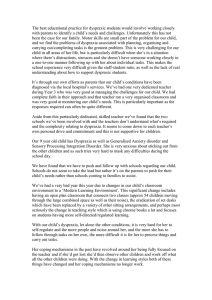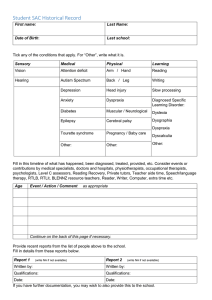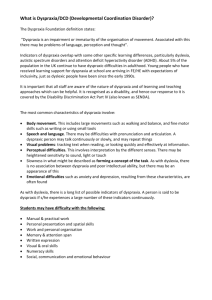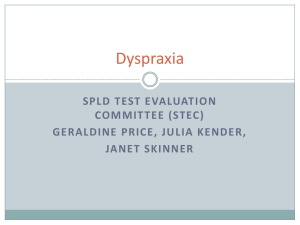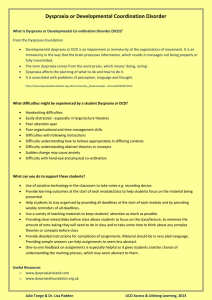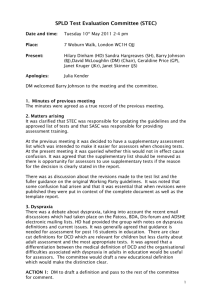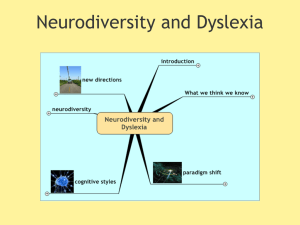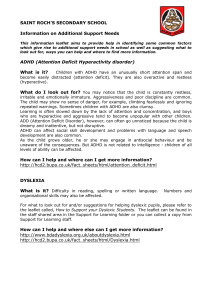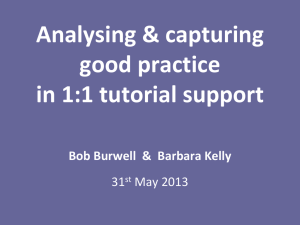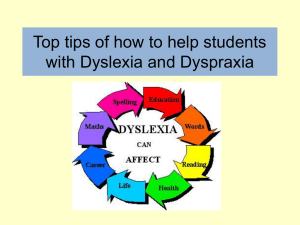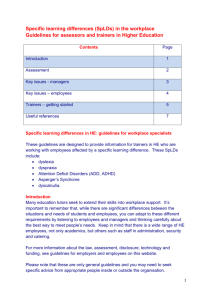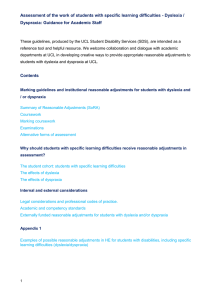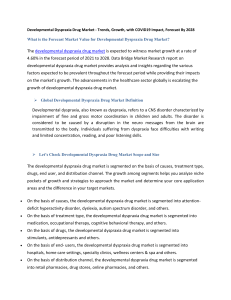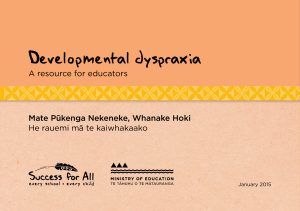Presentation
advertisement
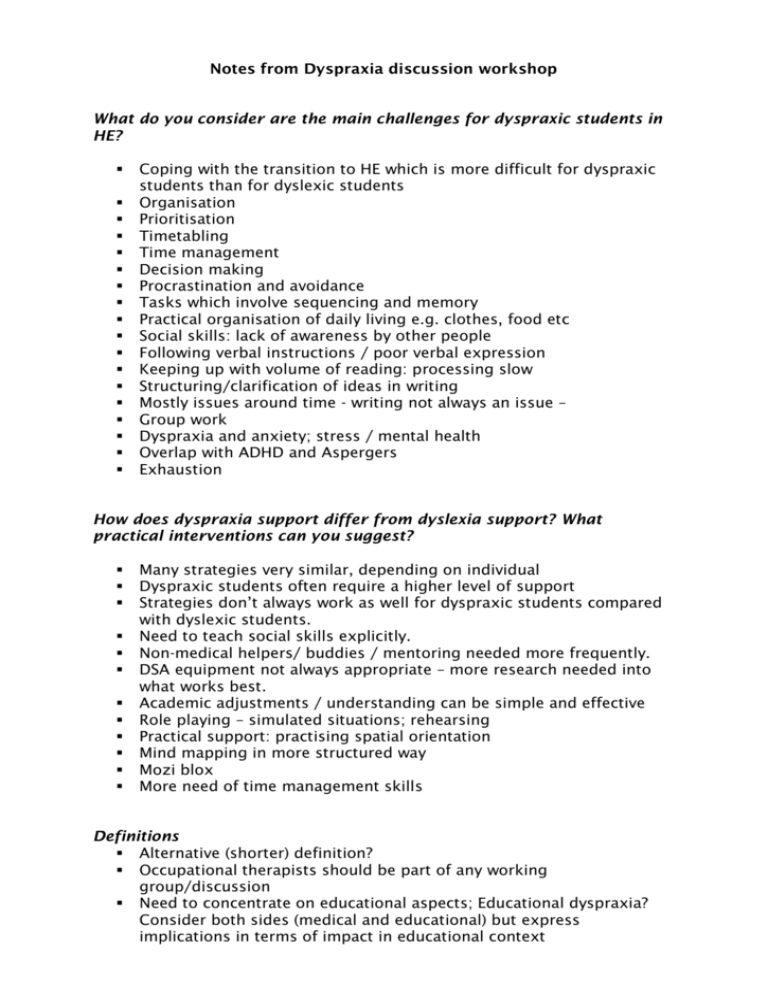
Notes from Dyspraxia discussion workshop What do you consider are the main challenges for dyspraxic students in HE? Coping with the transition to HE which is more difficult for dyspraxic students than for dyslexic students Organisation Prioritisation Timetabling Time management Decision making Procrastination and avoidance Tasks which involve sequencing and memory Practical organisation of daily living e.g. clothes, food etc Social skills: lack of awareness by other people Following verbal instructions / poor verbal expression Keeping up with volume of reading: processing slow Structuring/clarification of ideas in writing Mostly issues around time - writing not always an issue – Group work Dyspraxia and anxiety; stress / mental health Overlap with ADHD and Aspergers Exhaustion How does dyspraxia support differ from dyslexia support? What practical interventions can you suggest? Many strategies very similar, depending on individual Dyspraxic students often require a higher level of support Strategies don’t always work as well for dyspraxic students compared with dyslexic students. Need to teach social skills explicitly. Non-medical helpers/ buddies / mentoring needed more frequently. DSA equipment not always appropriate – more research needed into what works best. Academic adjustments / understanding can be simple and effective Role playing – simulated situations; rehearsing Practical support: practising spatial orientation Mind mapping in more structured way Mozi blox More need of time management skills Definitions Alternative (shorter) definition? Occupational therapists should be part of any working group/discussion Need to concentrate on educational aspects; Educational dyspraxia? Consider both sides (medical and educational) but express implications in terms of impact in educational context Dyspraxia is an umbrella term that can describe both motor coordination difficulties and neuro-cognitive weaknesses in the context of HE. Features of dyspraxia re recognised as ........ organisation .......etc etc. This can affect ........ Assessment Tools: What assessment tools can we use as practitioners? How can we separate medical and educational aspects of dyspraxia without involving multiple assessment? What conclusions can be drawn without a medical assessment of motor co-ordination difficulties? Test of Visual-Motor Integration (Beery) is more appropriate information than Morrisby Manual Dexterity Test. British Psychological Society and many dyslexia specialists not happy with Morrisby. Processing speed and automaticity; rapid naming possibly using subtests from Dyslexia Adult Screening Test (DAST)? Design memory from Wide Range Assessment of Memory and Learning (WRAML2) Symbol Digit Modalities Test (SDMT) Detailed Assessment of Speed of Handwriting (DASH) (Adult version when it comes out later this year) Free writing – handwriting + speed Speed of typing Diamonds sub-test from Wide Range Intelligence Test (WRIT) Portwood movement exercises
